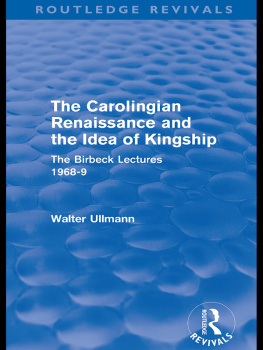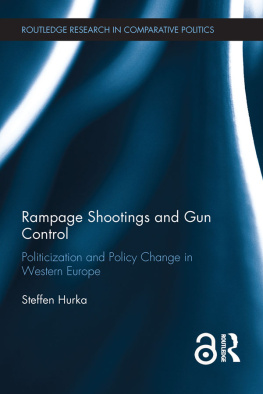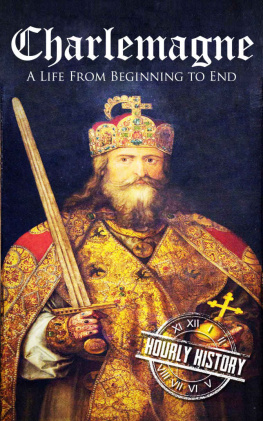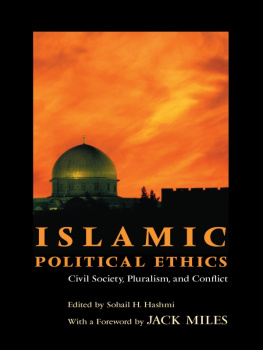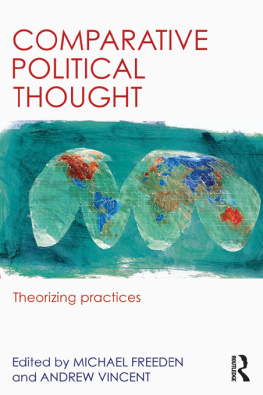
Augustine and the Art of Ruling in the Carolingian Imperial Period
This volume is an investigation of how Augustine was received in the Carolingian period, and the elements of his thought which had an impact on Carolingian ideas of state, rulership and ethics. It focuses on Alcuin of York and Hincmar of Rheims, authors and political advisers to Charlemagne and to Charles the Bald, respectively. It examines how they used Augustinian political thought and ethics, as manifested in the De civitate Dei , to give more weight to their advice. A comparative approach sheds light on the differences between Charlemagnes reign and that of his grandson. It scrutinizes Alcuins and Hincmars discussions of empire, rulership and the moral conduct of political agents during which both drew on the De civitate Dei , although each came away with a different understanding. By means of a philologicalhistorical approach, the book offers a deeper reading and treats the Latin texts as political discourses defined by content and language.
Sophia Moesch is currently an SNSF-funded postdoctoral fellow at the University of Oxford, working on a project entitled Developing Principles of Good Governance: Latin and Greek Political Advice during the Carolingian and Macedonian Reforms. She completed her PhD in History at Kings College London.
Augustine and the Art of Ruling in the Carolingian Imperial Period
Political Discourse in Alcuin of York and
Hincmar of Rheims
Sophia Moesch
First published 2020
by Routledge
2 Park Square, Milton Park, Abingdon, Oxon OX14 4RN
and by Routledge
52 Vanderbilt Avenue, New York, NY 10017
Routledge is an imprint of the Taylor & Francis Group, an informa business
Published with the support of the Swiss National Science Foundation.
2020 Sophia Moesch
The right of Sophia Moesch to be identified as author of this work has been asserted by her in accordance with sections 77 and 78 of the Copyright, Designs and Patents Act 1988.
The Open Access version of this book, available at www.taylorfrancis.com, has been made available under a Creative Commons Attribution-Non Commercial-No Derivatives 4.0 license.
DOI: https://doi.org/10.4324/9781351116022
Trademark notice : Product or corporate names may be trademarks or registered trademarks, and are used only for identification and explanation without intent to infringe.
British Library Cataloguing-in-Publication Data
A catalogue record for this book is available from the British Library
Library of Congress Cataloging-in-Publication Data
A catalog record has been requested for this book
ISBN: 978-0-8153-6160-2 (hbk)
ISBN: 978-1-351-11602-2 (ebk)
Typeset in Times New Roman
by Deanta Global Publishing Services, Chennai, India
Caritas vero inter amicos melior est auro et fides inter absentes praetiosior gemmis
Alcuin of York, Epistle 76
Dedicated to Kurt, Rosmarie and Johanna Moesch, and Giovanni Trotto
Contents
This book refers to many primary sources, most of which are in Latin. Citations in the main text from Latin (or, occasionally, Greek) material are given in English translation, which is my own unless otherwise indicated. The original text is given in the endnotes. Wherever I draw significantly on primary sources without quoting them in the body of the text, I provide the excerpts in the endnotes in the original language. Paragraph breaks in all quotations correspond to the original text (as rendered in the editions I adhere to).
Many have contributed to this book, which is the culmination of four years of research into the reception of Augustine of Hippos political thought and ethics in the Carolingian era. In the autumn of 2010, I embarked on a PhD in England at Kings College London. I am grateful to my supervisors Peter Heather and Alice Rio for accepting my proposal from abroad, to KCL for providing the infrastructure for completing such a formidable task, and to the Swiss National Science Foundation for awarding me with a Doc.Mobility fellowship.
Several people have read the drafts of my doctoral dissertation. Thanks to Julia Crick for identifying weaknesses and options for improvement in my chapter on Alcuin of York, for encouraging my enthusiasm for palaeography and, last but not least, for encouraging me to give my first paper at Revealing Records V; to Daniel Hadas for his kind assistance with my translations of Latin passages from Alcuin and Augustine; to Carsten Schmieder for providing me with a second opinion on an intricate passage in Hincmar of Rheims Expositiones ad Carolum Regem ; and to Sarah Sharp for her excellent proofreading work.
To other people I owe a lot for helping me to develop my academic skills and specialisation. Thanks to Janet Coleman (London School of Economics) and Stefan Rebenich (University of Bern) for encouraging me to pursue research in the reception of late antique political thought; and to Achatz von Mller (University of Basel) for convening a seminar on Political Theories from Augustine to Machiavelli and for being my dissertation supervisor for the lic. phil. degree. At KCL, I am indebted to Edith Hall and Roland Mayer for welcoming me to their MA course on Hellenistic Poetry and for deepening my knowledge of ancient Greek literature, translation and interpretation; to Alessandra Bucossi, for piquing my interest in Greek Palaeography & Textual Criticism; thanks also to Charalambos Dendrinos (Royal Holloway) for allowing me to participate in his Working Seminar on Editing Byzantine Texts at the Warburg. At the KCL Modern Language Centre, I owe thanks to Paolo Nelli and Amira Mills, who taught me Italian and Arabic. Last but not least, I would like to express my warmest thanks to Simon Sleight and Joe Maiolo who have been invaluable sources of support and advice during my time of teaching at KCL and LSE.
My friends and family have been with me all along this journey. The importance of their contribution is overshadowed only by their love and friendship. Thanks to Albertine Fox, Sakiko Kaiga and Kathrin Pavi for their continuing presence and unswerving positivity; and to Foteini Kanellopoulou, Evangelia Gioldasi and Eda Karaarslanoglu for being my family away from home. Two people have shaped my work and life significantly during the past years: Franziska Herzog and Martin Kaiser. Their human qualities have been decisive in leading me to where I am today. In particular, the brilliance of Martin Kaiser and his enthusiasm for classical and patristic ancient Greek and Latin texts were reasons, almost a decade ago, for me to embark on a PhD in late antique and early medieval history. I have benefited, in each of my chapters, from his unique gift for language and literary analysis, and he continues to inspire by his example and dedication to the moral values academic work can pursue. My deepest gratitude above all, of course, to my family my parents, Kurt and Rosmarie Moesch, and sister, Johanna Moesch. I would also like to extend my love and wholehearted thanks to Giovanni Trotto, whose creative spirit and inexhaustible curiosity have never failed to enrich my explorations.
In the final stages of my work, I thank Routledge and all those who were involved in the production of my book. Above all my editors, Michael Greenwood and Dana Moss, deserve my grateful thanks for their expert work and careful guidance.


